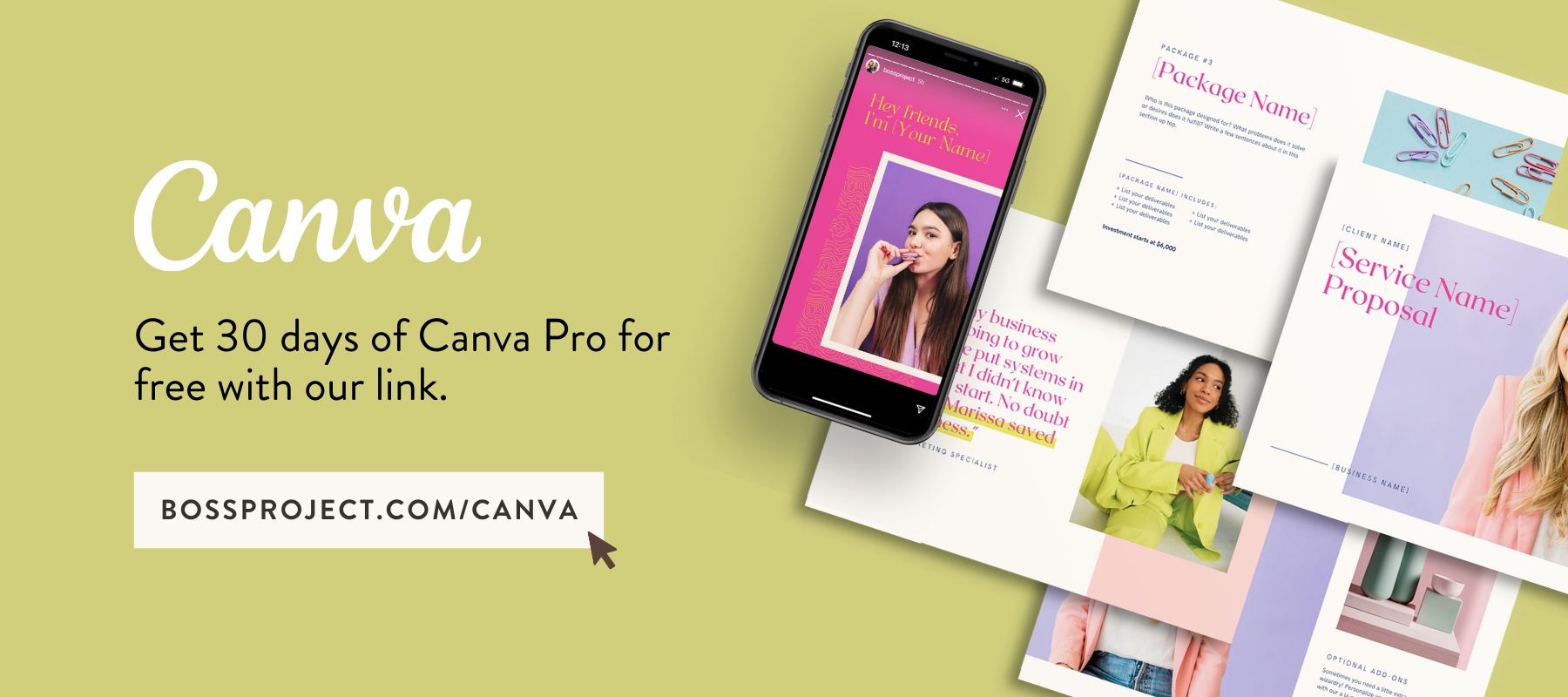How to Be Your Own CFO with Amy Northard the Accountant for Creatives
Episode 065: Show Notes
Today on the podcast, we have Amy Northard CPA, accountant for creatives. Amy has been a friend of ours for what feels like centuries at this point, and we have known her longer than we have known each other. She is awesome and makes everything sound so simple that you think maybe you could do it yourself, even though you can’t. Amy is so knowledgeable about all things taxes, bookkeeping, making things stress free, and making things easy to understand.
You are going to learn a lot in today’s episode, like what type of business you should be and how to even form it. She also shares her favorite apps, tools, and softwares to keep track of all your numbers. We go over the questions you should ask before you are ready to hire a CPA, things that you guys are forgetting to deduct, and stuff that you actually cannot deduct, that you might have thought you could. We also talk about the icky quarterly taxes and how to make that process super simple for you moving forward so that you are not scared and stressed out come tax season. So just relax, settle in, and give this one a listen.
Choosing The Right Business Structure for Your Company
When you are just getting starting in your business, starting up a sole proprietorship is definitely the easiest. The nice thing is, when you add that LLC layer to your business, if you are a single owner, it does not change anything with the way you do bookkeeping or file taxes; everything stays the same. So it does not hurt to go ahead and add that LLC layer of protection for yourself. Both structures are fairly easy to set up. However, once you start getting into partnerships and S Corps, the level of difficulty increases. It is nothing too insane and as long as you have somebody walking you through it, it’s not too bad. But those are the ones that require extra tax returns, so there is also an extra cost to them.
Setting Up A Sole Proprietorship Or An LLC
A sole proprietorship is literally set up as soon as you decide that you are going to treat your company like a real business. There’s nothing you have to file for the IRS to start a sole proprietorship. You can run it under your social security number and your name, and that is all you have to do. Now keep in mind, every state is a little bit different. Some states have requirements for sole proprietorships, such as registering for a license, so always be aware of what you might need. LLC’s are something you apply for within your state, so it is a good idea to also take a look and just make sure you are prepared for the filing fees. For example, in California, if you want to be an LLC you have to pay $800 regardless of whether you make money or not. So researching that before you jump right into it is always a really good idea.
When To Hire a Bookkeeper for Your Business
Making the decision to hire a bookkeeper will depend on how familiar you are with doing your own books. Some people feel like it’s second nature to do their own books, but the majority of creatives never touch numbers. So instead of spending you creative time on doing the books, you could outsource it from the very beginning and focus that energy on things that will make money for your business. Another thing to keep in mind is that you can so easily mess up both your bookkeeping and taxes and then still end up paying a ton of money to a professional to get it fixed. So you can avoid the hassle and the heartache by having someone involved with that right from the start. As long as you can afford it and it makes sense financially for your business, Amy recommends that you hire someone to help with bookkeeping as soon as possible.
Tools, Softwares, and Apps to Keep Track of Your Money
Finding a good bookkeeping software is definitely the first thing to do, even if it ends up being a simple spreadsheet. Find something you feel comfortable with and that feels good to you, something that you find easy to work with and that you won’t put off,, and stick with that. Amy recommends using Google Docs, especially if you are sending your info to your accountant or your bookkeeper to review, as it is very easy to send along. As far as bookkeeping software goes, Amy’s top three are QuickBooks online, Xero, and Waveapps.com. Those are really good because they have the tools you need to make sure that all the transactions are in there each month and that you are not missing things or duplicating things. Plus, if you decide to outsource, they allow you to invite your accountant to access it instead of having to give them your password.
Systematizing Your Financial Record Keeping
To keep everything in order, start from the very basics. The very first thing to organize is your receipts. Amy recommends that instead of burying them in your purse, never to be seen again, you should pull them out as soon as possible and stick them in a folder for that month. Then, when it is time to do your books, you have them ready all in one place so that you can simply pull them out. Do the exact same thing with email receipts, by putting them in one folder in your inbox. The next step, if you are using a bookkeeping software, is to go in each day or each week and as the transactions flow in, give them a category. That way everything is organized for when it comes time to do your monthly reconciliation. During your reconciliation, make sure that whatever is in your bookkeeping software matches exactly with what is on your bank statement. That way if there are duplicates, they will show up and if you are missing any transactions, it will be really obvious.
Clearing Up The Quarterly Tax Debacle
We often hear from a lot of business owners, especially brand new ones, that they were told that they did not have to pay quarterly taxes in their first year of business. To clear that misconception up, although it is your first year in business and you do not have to pay quarterly, you still have tax that is going to be due at the end of the year. So paying in on a quarterly basis is just like sending in a deposit to the IRS in your state to pay down a chunk of that tax that you are going to owe at the end of the year. Keep in mind that if you do not pay them and you end up paying more than a thousand dollars, you will have under payment penalties assessed to you. So as a game plan, if you are a sole proprietor or single owner LLC, even a partnership, it is a good idea to set aside about 30 to 35% of your profit for taxes each year in a separate savings account.
Quote This
The number one trick to making good decisions is just knowing your numbers.
—Amy Northard
Highlights
Understand more about the different types of business structures, and which is best for your company. [0:04:50.7]
Learn how to set up either a sole proprietorship or an LLC for your business and how the process works. [0:06:13.3]
Find out when it might be a good time for you to hire a bookkeeper for your business. [0:08:48.4]
Amy shares her favorite tools, softwares, and apps to help you best keep track of your money. [0:10:19.9]
Learn how to systematize your financial record keeping so that nothing goes amiss in your business. [0:12:07.5]
Understand when it is applicable to pay quarterly taxes, and how to stay prepared for payment throughout the year. [0:20:51.9]
#TalkStrategyToMe [0:33:26.2]
Pick a bookkeeping software or a spreadsheet and learn how to use it.
Get a system for organizing your paper and email receipts.
Put reminders on your calendar for tax deadlines.
Talk to an accountant earlier rather than later; don’t wait until February or March.
ON TODAY’S SHOW
Amy Northard
Accountant for Creatives
Amy Northard is a Certified Public Accountant who specializes in working with small business owners on making their taxes and bookkeeping less stressful. She's inspired daily by her creative clients and they fuel her creative side when she is waist-deep in numbers. She has a goldendoodle pup who is usually found by her side in the office and gives her a reason to leave the house during tax season.
Besides just filing taxes and creating income statements, Amy loves the satisfaction of hearing small business owners say, “That was not as bad as I thought it was going to be!” when it comes to their numbers. She knows business owners wear a lot of hats and the financial one is usually the least favorite, so she’s working to change that, client by client.
KEY TOPICS
Choosing your business structure, Setting up a sole proprietorship or an LLC, Hiring a bookkeeper, Tools, software, and apps to keep track of your money, Financial record keeping, Paying quarterly taxes, Non-obvious tax deductions, Questions to ask before hiring a CPA





